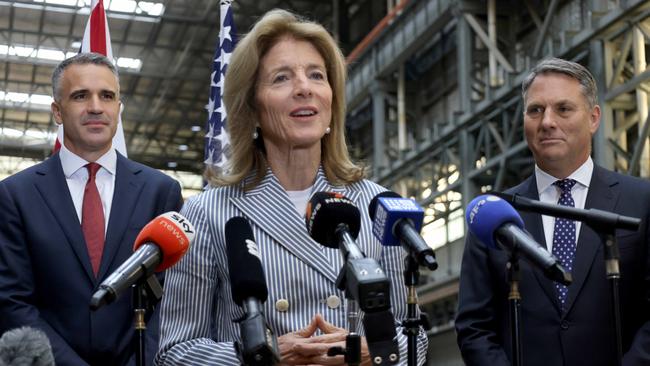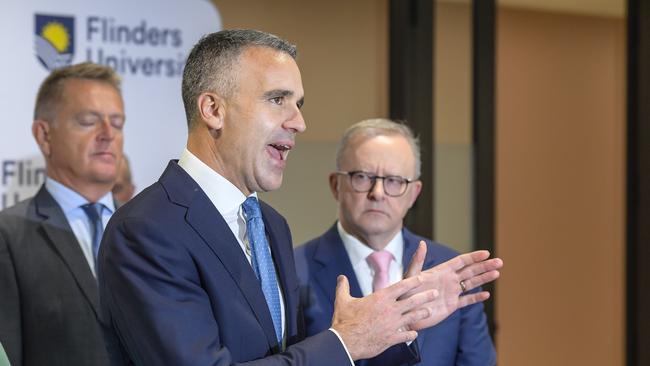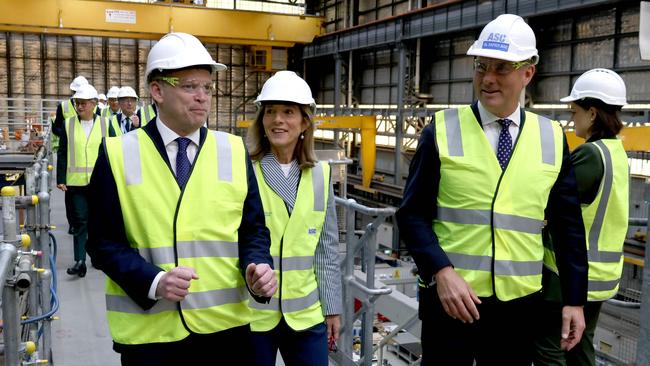Adelaide losing AUKUS nuclear-powered submarines would be worse than Holden or the Grand Prix | Paul Starick
The biggest project in Australia’s history is not sure thing and failure risks shattering SA’s economy and psyche, writes Paul Starick.
SA News
Don't miss out on the headlines from SA News. Followed categories will be added to My News.
Forget about the Formula One Grand Prix’s loss to Melbourne, Holden’s closure or the State Bank financial disaster.
Any future scuttling of the $368bn AUKUS nuclear-powered submarine project would be a catastrophic blow to both the South Australian economy and psyche.
This might sound extreme, given the widespread and lasting havoc wrought upon the state by some of the aforementioned totemic blows.
But the Adelaide-based construction of nuclear-powered submarines represents a historic opportunity to create thousands of highly skilled jobs lasting decades, thus boosting prosperity and transforming the economy.
Instead of having to flee SA in search of highly paid, rewarding jobs interstate overseas, young people would have the option of working in Adelaide, with opportunities to seamlessly transfer to linked careers in the United States or United Kingdom.
They would work at the cutting edge of technology, on a project vital to national security.
But the AUKUS nuclear-powered submarine construction at Osborne Naval Shipyard, in Adelaide’s northwest, is by no means a sure thing.


Critics of the trilateral AUKUS deal have expressed fears of “multiple escape hatches” for the US or the UK, with the federal government accused of taking a $368bn gamble.
An updated 50-year agreement tabled in federal parliament on August 12 allows the US and UK to share information, nuclear material and equipment with Australia’s nuclear-powered submarine program.
But it also revealed an escape clause of just one year.
“A government may discontinue its participation in this understanding earlier and, in such case, should provide one year’s written notice to the other governments of its intent to do so,” the agreement says.
There might be bipartisan support for AUKUS across the three nations at the moment but things can change rapidly in politics.
Already, there is great uncertainty about the impact of a Donald Trump presidency on AUKUS.
One of the biggest sceptics of Adelaide-based nuclear-powered submarine construction is the highly credentialed Alexander Downer – a passionate South Australian who is Australia’s longest-serving foreign minister and a former Australian High Commissioner to the UK.
In typically colourful language, Mr Downer last October declared the AUKUS submarine project would become “the greatest white elephant project in the world”.
“The submarines will never be built in Adelaide because the cost will be prohibitive and the technological challenges are too great. Some government in the future will make the obvious decision and not go ahead with the Adelaide build,” he said.


If Mr Downer is right, this will be an unprecedented missed opportunity. AUKUS is the biggest project in Australian history, centred on Adelaide.
Defence SA, a state government agency, forecasts $2bn will be spent at Osborne in the next four years to develop the nuclear submarine shipyard.
At its peak, this shipyard construction project alone will employ up to 4000 workers.
Once the AUKUS submarine construction reaches its peak in 20 to 30 years, another 4000 to 5500 people will be employed directly.
This would be a cornerstone industry for SA, attracting numerous other firms in the supply chain and talented people from our allies.
It would be the modern-day version of the automotive, agriculture and manufacturing industries for SA – foundation stones of the economy.
AUKUS is secure, for now.
Republican congressman Michael McCaul, the chair of the US House of Representatives’ powerful foreign affairs committee, told the August 17 Weekend Australian that the pact would survive a Trump presidency because the concept predated Joe Biden’s administration and had “very, very strong bipartisan support”.
Immense challenges remain, not least building a skilled workforce, if the world’s most complex machines are to built in Adelaide.
More Coverage
Originally published as Adelaide losing AUKUS nuclear-powered submarines would be worse than Holden or the Grand Prix | Paul Starick





